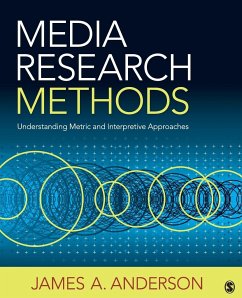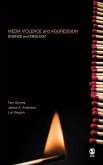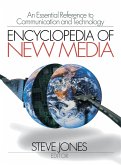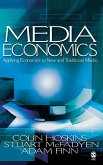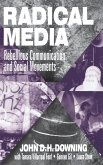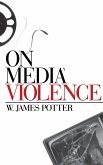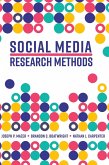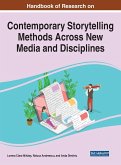More than a 'how-to' book, this textbook explains the reasons behind the methods and makes the connections to theory and knowledge production. Written in a conversational style, it takes the reader through each step of the research process, outlining the procedures, differences, strengths and limitations of metric, interpretive and the newer hybrid approaches. It lays down a strong foundation in empirical research and problem solving, addressing metric topics of hypotheses, sampling, statistics, and survey and experimental protocols and interpretive topics of textual analysis, coding, critical engagement and ethnography. It ends with a special chapter for those aiming at a career in research and analysis. Key Features: • provides students with an extensive overview of research practices while supplying real, practical advice on how to conduct research • consistent critical perspective throughout gives students an understanding of both the accomplishments and difficulties of research • addresses the practices of metric and interpretive research through Monte Carlo demonstrations that show the inner workings of statistical analysis and interpretive decision making
Media Research Methods: Understanding Metric and Interpretive Approaches brings the insights of a senior theorist, methodologist, and critic to the classroom. Departing from the methods recipe approach, the text explains the reasons behind the methods and makes the connections to theory and knowledge production. Written in a conversational style, the book engages students and appeals to them as media consumers and users of research. The book takes the reader through each step of the research process, outlining the procedures, differences, strengths and limitations of metric, interpretive and the newer hybrid approaches. The text lays down a strong foundation in empirical research and problem solving, addressing metric topics of hypotheses, sampling, statistics, survey and experimental protocols and interpretive topics of textual analysis, coding, critical engagement and ethnography. A special chapter at the end of the book is a helpful guide for those readers who aspire to a research and analysis career.
Hinweis: Dieser Artikel kann nur an eine deutsche Lieferadresse ausgeliefert werden.
Media Research Methods: Understanding Metric and Interpretive Approaches brings the insights of a senior theorist, methodologist, and critic to the classroom. Departing from the methods recipe approach, the text explains the reasons behind the methods and makes the connections to theory and knowledge production. Written in a conversational style, the book engages students and appeals to them as media consumers and users of research. The book takes the reader through each step of the research process, outlining the procedures, differences, strengths and limitations of metric, interpretive and the newer hybrid approaches. The text lays down a strong foundation in empirical research and problem solving, addressing metric topics of hypotheses, sampling, statistics, survey and experimental protocols and interpretive topics of textual analysis, coding, critical engagement and ethnography. A special chapter at the end of the book is a helpful guide for those readers who aspire to a research and analysis career.
Hinweis: Dieser Artikel kann nur an eine deutsche Lieferadresse ausgeliefert werden.

